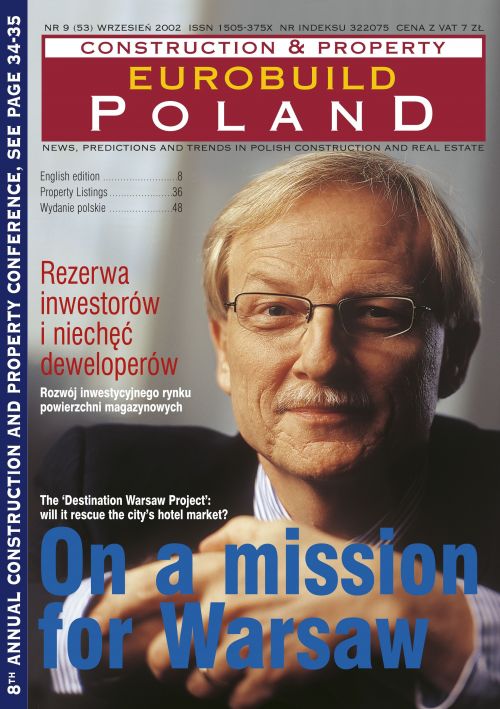Eurobuild asked Warsaw's real estate agents to report on their performance in
the office space market over the first seven months of 2002. We received eleven
responses of varying detail, but DTZ Zadelhoff Tie Leung emerged as the most
successful performer of the period. They reported combined deals of 27,595 sqm
of space, of which 9,600 sqm had been re-negotiated.
Jones Lang La Salle and Colliers were next, with 20,000 sqm and 18,000sqm
respectively. Unfortunately, how much of this was re-negotiated space wasn't
made clear by either, though JLL gave a very rough figure of "about 25%".
For our survey however, this was vital data, as it reflects a salient trend.Re-negotiations
Given the current weakness of the Polish economy, many companies have been wary
of moving into new space, preferring to keep a watchful eye on the market.
"In the current business climate, companies are prudently delaying decisions to
expand into new office space", say King Sturge, through whom appr




























































